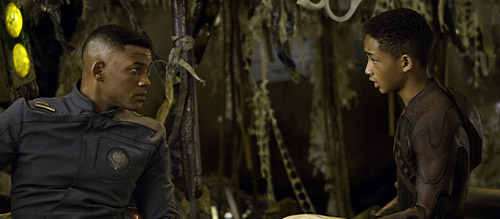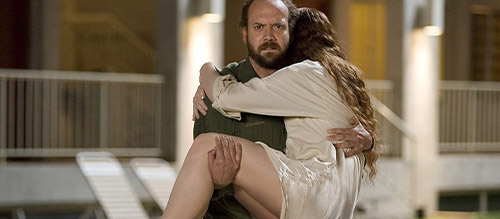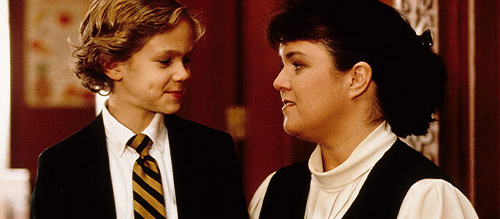M. Night Shyamalan Directed Movies Ranked
12. After Earth (2013)
Adapted from a story written by star Will Smith, After Earth felt very much like a Smith family vanity project wrapped in pretentious (in all the wrong ways) nonsense, like the very worst of an Existentialism for Beginners course. Smith was even rumoured to have directed some of the movie himself.
As was the case in The Happening, not much actually happens in After Earth, but it doesn’t seem to be without the want of trying.
Jaden Smith (in this film his father’s son, because of course he is), is tasked with crossing unruly planetary territory to save the day. He is faced with a number of tasks to keep him (and us… apparently) interested, but despite video-game-like level progression through the narrative, the film is nothing short of supremely boring.
British film critic Mark Kermode said of After Earth on his radio show that the major issue of the film was in the story being one of a child with personality and gusto having to undergo a series of events that would make him dull and boring (or, as the movie puts it, composed and capable of doing his job). In insisting upon this concept, the film ensures that we feel every minute of how dull and boring the character relentlessly becomes – the movie itself becoming as relentlessly dull and boring in the process.
After Earth made it four from four in terms of woefully bad releases for Shyamalan, causing the director to revisit his low budget independent horror roots for his next film The Visit in an attempt to recapture what had brought him to the dance in the first place.
Recommended for you: Jordan Peele Movies Ranked
11. Lady In the Water (2006)
Coming across as the work of a very angry man shouting into the wind, Lady In the Water was filled with dialogue so on the nose regarding Shyamalan’s own issues with film critics, producers and studios that it felt almost fourth wall breaking; and not in a good way.
In being defensive of mixed reviews to his previous release The Village, Shyamalan isolated himself from critics, viciously undermining and then murdering one in the Lady In the Water screenplay, then going on to cast himself as the film’s prophet in some kind of ritualistic act of self-appreciation nobody but the man himself could fathom as to why it needed to be included. The movie also didn’t come across like it knew what it wanted to be.
Shyamalan confessed that inspiration for the film came from bedtime tales he’d tell his children, and the casting of Bryce Dallas Howard (daughter of Splash director Ron Howard) as a mermaid stuck in an apartment complex’s swimming pool, seemed to indicate that the film was intended to be a spooky family tale, though nothing else about it worked to back that up.
Shyamalan, perhaps believing too greatly in his own hype, made Lady In the Water too wordy for kids and tried way too hard to give the film some kind of deep and meaningful message that he never quite delivered. The result was a film that felt too stupid and self-aggrandising for adults to enjoy, but was way too much for children to follow.
The filmmaker, whose career to this point was still a very promising one, worked tirelessly through Lady In the Water to burn bridges with studios, actors, producers, critics and even friends, almost costing the man his entire career.
10. Wide Awake (1998)
In M. Night Shyamalan’s first theatrical feature, the director delivered a story centring around his religion that would rival that of later release Signs in terms of how outwardly preachy it was, Wide Awake following the story of a school child who loses faith upon the death of his grandfather and is subsequently supported by teacher (and Nun) Rosie O’Donnell in his pursuit to find God once again.
Like much of Shyamalan’s work, Wide Awake seems to believe it is more profound than it actually is, creating the atmosphere of a message-movie rather than an immersive narrative experience.
The performance of child actor Joseph Cross is impressive, and the first piece of evidence that Shyamalan is perhaps better at directing children than adults, but rather than being an outright good or bad movie Wide Awake is distinctly average religious fare, the film being by far the director’s most forgettable outing (for better and for worse).




